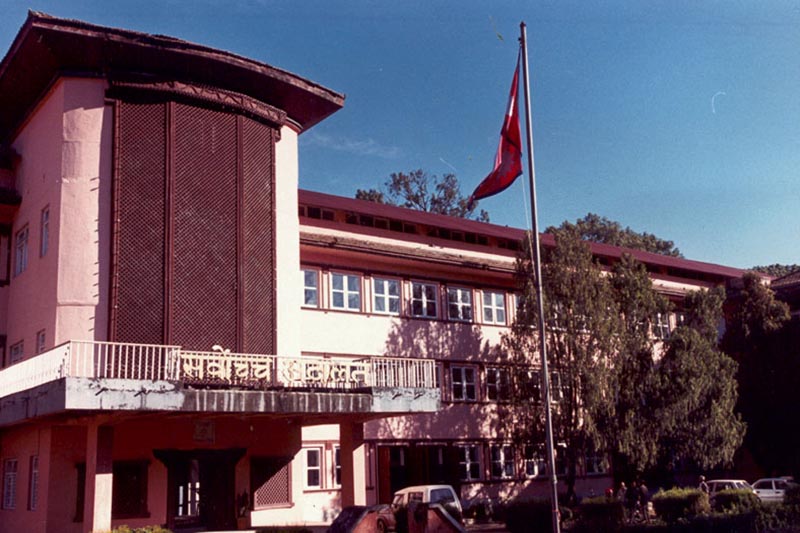SC hearing against Gautam’s nomination to NA begins
KATHMANDU, SEPTEMBER 30
Constitutional bench of the Supreme Court today began hearing in the case filed against Nepal Communist Party (NCP) Vice-chair Bamdev Gautam’s nomination to the National Assembly.
Lawyers representing petitioners, Senior Advocate Dinesh Tripathi and Advocate Badri Raj Bhatta and the government presented their arguments. Hearing of the case will continue on Friday in the same constitutional bench headed by Chief Justice Cholendra Shumsher JB Rana.
Other justices in the bench are Deepak Kumar Karki, Hari Krishna Karki, Bishwambhar Shrestha and Ishwar Prasad Khatiwada. Petitioner Tripathi argued before the court that nomination of Gautam to the Upper House had undermined the decisions of his electors, who voted against him in Bardiay-1 constituency.
He also said the provision whereby the president nominates three persons to the NA on recommendation of the government is for nominating distinguished persons of various walks of life and not for a regular leader like Gautam.
The constitutional provision stipulating that a person, who has lost the HoR election cannot become a minister in the same tenure of the HoR means that such a person cannot also become a member of the NA, he argued. Tripathi said the government used the constitutional provision with mala fide intention against the scheme of the constitution. Advocate Pankaj Kumar Karna, who pleaded on behalf of the petitioners said had the constitution imagined of nominating any person from any field, the law of the land would have incorporated provisions for electing all 59 members to the NA through direct election. But since the spirit of the constitution was to nominate distinguished persons, who have contributed to national life such as economist, scientist, artists and academicians, the constitution incorporated provision for nominating three people to the 59-member NA.
Attorney General Agni Prasad Kharel said as per Article 87 of the constitution, Gautam was eligible to become a member of the federal parliament and thus Article 78 (4) did not apply to him. Kharel said under the Interim Constitution, Mahantha Thakur and Madhav Kumar Nepal, who had lost Constituent Assembly elections, were later appointed to the NA among the 26 nominees.
Nepal even became prime minister. He also cited the case of late prime minister Krishna Prasad Bhattarai, who was defeated in the House of Representatives elections held in 1959, but was nominated to the HoR and he later became the speaker of the House in the same tenure of the HoR.
“One-time defeat does not mean that the loser has been disqualified forever,” he argued.
The bench had given two hours each, to the lawyers representing the petitioners, the government and Gautam to conclude their arguments. The court will hear arguments from Gautam’s lawyers on Friday and would give the petitioners a chance to rebut their arguments.
Earlier a single bench of the SC had ordered the government to keep Gautam’s process in status quo besides asking the government not to assign extra constitutional responsibility to him.
A version of this article appears in e-paper on October 1 2020, of The Himalayan Times.






